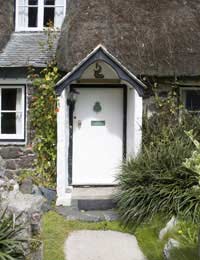Inheriting Property

Property is likely to make up the majority share of an inheritance and for many people will amount to virtually all of the inheritance.
Things to Consider
Property is inherited as part of the estate in general and so will be liable to inheritance tax so far as any tax is liable (if the total value of the assets of the deceased exceed £300’000). All property will naturally pass to the spouse of the deceased if they are joint tenants at the time of death.
If they have separated, property will still pass to the spouse of the deceased unless a will has been made. For this reason it may do well to change your will if you have recently separated from your spouse but are not yet divorced. If you are getting divorced, or have got divorced be sure to change your will accordingly, should you have one. If you are in the position of knowing a relative or friend in this position who is perhaps not aware enough to make any decisions themselves consult their lawyer or the citizens advice bureau: Property inheritance can be a deeply divisive issue where divorced benefactors are concerned as it sometimes draws in the families of both ex-partners in a legal wrangle over assets. If you are in a position of responsibility and are trusted by your family it may be best to clear up any awkwardness ahead of time.
In the case of ‘tenants in common’ (people who own a share of the house between them) the property will naturally pass to either a spouse or their next of kin, unless they have a will
You can give your property to your children in your lifetime as a gift thereby avoiding having to pay inheritance tax on it, providing that you live for a further 7 years or more. If you do this and carry on living in the house rent free your child will still be liable to pay tax on their inheritance. If your child sells the house in any circumstance they will pay Capital Gains Tax on the increase.
A house cannot be sold as part of an inheritance until inheritance tax is paid. Therefore you cannot sell a house to raise the money needed to pay inheritance tax. If you cannot afford to pay inheritance tax you must first borrow it before selling the house, enabling you to pay back this loan from the sale of the house. You can sell the house once you have paid your first portion of inheritance tax. It may pay to pay the first portion from other assets, thus freeing up the house in order to sell that and ay the remaining inheritance tax. If you absolutely cannot pay any inheritance tax you can apply to the council for a ‘grant on credit’ (see related article).
If you choose to sell a property and give the free money away note that the money that you have given away will be subject to inheritance tax if you die within 7 years, unless it is given to a spouse, who will in any case not be due for tax.
If you inherit a property that has a mortgage you will be liable to pay the mortgage whether you live there or not.


Re: Step by Step Guide to Challenging a Will
Kak esehiko sminor k112 inheritanceissues.co.uk
Re: Step by Step Guide to Challenging a Will
Estoy recaudando dinero para una bici. Ni siquiera quiero pedirselo a mi madre; es bajita. Si alguien puede ayudar,…
Re: Will Inheritance Affect My Council Tenancy?
Im facing similar situation. Inheritence only enough to buy foreign property, agricultural holding, or derelict…
Re: Inheriting Property
Am I allow to get housing benefit on my mums property till its sold?even though I will eventually be entitled to 25%of the sale
Re: Inheriting Property
Am I allow to get housing benefit on my mums property till its sold?even though I will eventually be entitled to 25%of the sae
Re: Will Inheritance Affect My Council Tenancy?
I am living in temporary council accommodation and due to illness am receiving PIP plus Universal Credit. I am…
Re: Will Inheritance Affect My Council Tenancy?
I’m a council tenant my died and left a flat over 55 to live in that buliding to me how’s do I go ambition…
Re: Will Inheritance Affect My Council Tenancy?
I doubt this will be answered as I can’t see any answers to anyone else’s comments but here goes My mum wants…
Re: Will Inheritance Affect My Council Tenancy?
I have inherited property from my mother in law, as we live in council property could we rent the inherited…
Re: Will Inheritance Affect My Council Tenancy?
Assured social housing tenant (SH), lone parent recently deceased leaving an estate including a 3 bedroom…